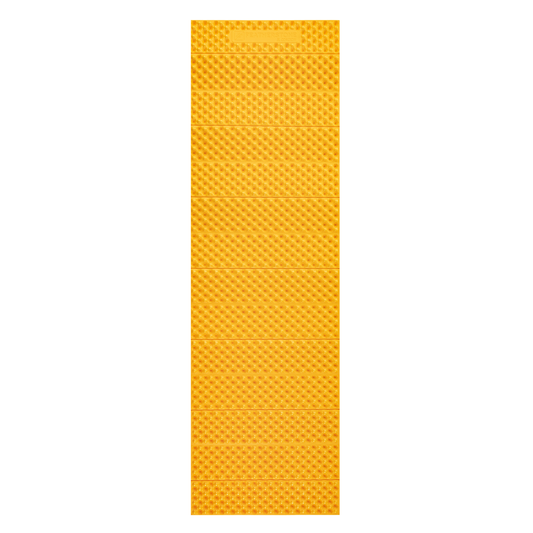 The abbreviation CBD seems to be found everywhere from over the counter lotions to even trail mix. By being inundated with a flood of information and claims, one can be left with some confusion on the details of how CBD actually works and when should you use it. But with everyone from pharmacists, athletes, and even my neighbor (who swears CBD works for calming her dog), one can have the perception of the auspicious effects of CBD. For the case of outdoor athletes, thru-hiking, rock climbing, and biking often promote trauma and prolonged wear and tear to the body which can lead to injury and pain. One might suffer from induced inflammation of their joints and often search for effective methods to recovery and pain relief; however, over-the-counter NSAID pain relievers such as ibuprofen and naproxen sodium may pose more harm than good to your health. With this landscape of available pain relief treatments, it’s evident that more and more outdoor athletes are seeking alternatives and curious to the promises of CBD and its inflammatory qualities. But is it right for you? Before we go deeper, let us delve into what CBD is and how it works.
The abbreviation CBD seems to be found everywhere from over the counter lotions to even trail mix. By being inundated with a flood of information and claims, one can be left with some confusion on the details of how CBD actually works and when should you use it. But with everyone from pharmacists, athletes, and even my neighbor (who swears CBD works for calming her dog), one can have the perception of the auspicious effects of CBD. For the case of outdoor athletes, thru-hiking, rock climbing, and biking often promote trauma and prolonged wear and tear to the body which can lead to injury and pain. One might suffer from induced inflammation of their joints and often search for effective methods to recovery and pain relief; however, over-the-counter NSAID pain relievers such as ibuprofen and naproxen sodium may pose more harm than good to your health. With this landscape of available pain relief treatments, it’s evident that more and more outdoor athletes are seeking alternatives and curious to the promises of CBD and its inflammatory qualities. But is it right for you? Before we go deeper, let us delve into what CBD is and how it works.
What is CBD and how does it work?

CBD, short for Cannabidiol, is the second most active ingredient compound that stems from the cannabis plant, hemp. Both THC and CBD are cannabidiols; however, only THC gets you high. According to the World Health Organization, pure CBD is shown to have no adverse health outcomes and is safe and well tolerated by humans (and animals).
Our bodies have an endocannabinoid system(ECS), a cell-signaling system identified in the 1990s by researchers exploring THC. ECS plays a major role in balancing our bodies primary functions from sleep, mood, appetite, memory, and more. Endocannabinoids exists in our bodies and are naturally produced. When cannabinoids are introduced to the body, the compound binds with the ECS receptors and signals to the ECS the need to take action. Depending on the cannabinoid that is introduced, albeit, our bodies will react with certain outcomes.
Retail CBD products that are available today derive from hemp plants that are low in THC but high in CBD. Manufacturers of CBD products have found a way to isolate the CBD compound and remove THC from the finished product. It’s important to note that not all CBD products are made the same. There are currently 3 types of CBD products available today: CBD Isolate, Full Spectrum, and Broad Spectrum (THC-free).
Can CBD help outdoor athletes?
So, we know that CBD doesn’t get you high and is considered safe. But, can this really help outdoor athletes dealing with inflammatory pain? It’s been known that exercise induced inflammation is good for athletes as our body repairs itself; however, too much inflammation can hinder recovery and performance. This is where cannabinoids come along. By binding with the ECS’s CB2 receptor, the cannabinoids help control and balance the response of your immune system after a hard workout. People have also suggested that cannabinoids work great as a sleep aid. Sleep, as we are all aware, is paramount to muscle recovery and often times struggle with during backpacking—a huge plus for CBD.
How to use CBD

For many athletes, CBD is used as a means for recovery and consumed post workout or before sleep. There are many forms of CBD available for consumption from pills, oils, vapor, sports drinks, lotions, edibles, and more. The dosage and the way you consume CBD varies. Since CBD products are not well regulated, there can be a misnomer to how much CBD you should consume. The way CBD is consumed also plays a role on how quickly the experience of its effects are. For example, capsules and edibles will take longer to feel the effects compared to creams because it needs to be digested. It’s best to always start with a low dosage and gauge your tolerance and experience.
The caveat of CBD
The emergence of CBD is truly groundbreaking for athletes given the reviews of how safe and effective the treatments are. But, the speed at which CBD products have become mainstream has scientist and studies barely catching up to support the claims.
Overall, there is still a lot to learn about CBD and how it’s best utilized for athletes. What it also dials down to is knowing what is in the CBD product you’re using and if it accurately states what is claimed on the label. What we do know at this point is pure CBD has great potential benefits with no health risks. If the ingredient is proven to works great as a muscle inflammatory, pain reliver, and sleep aid then it’s great for outdoor athletes. As with any product, do your research and buy from a reputable brand.


